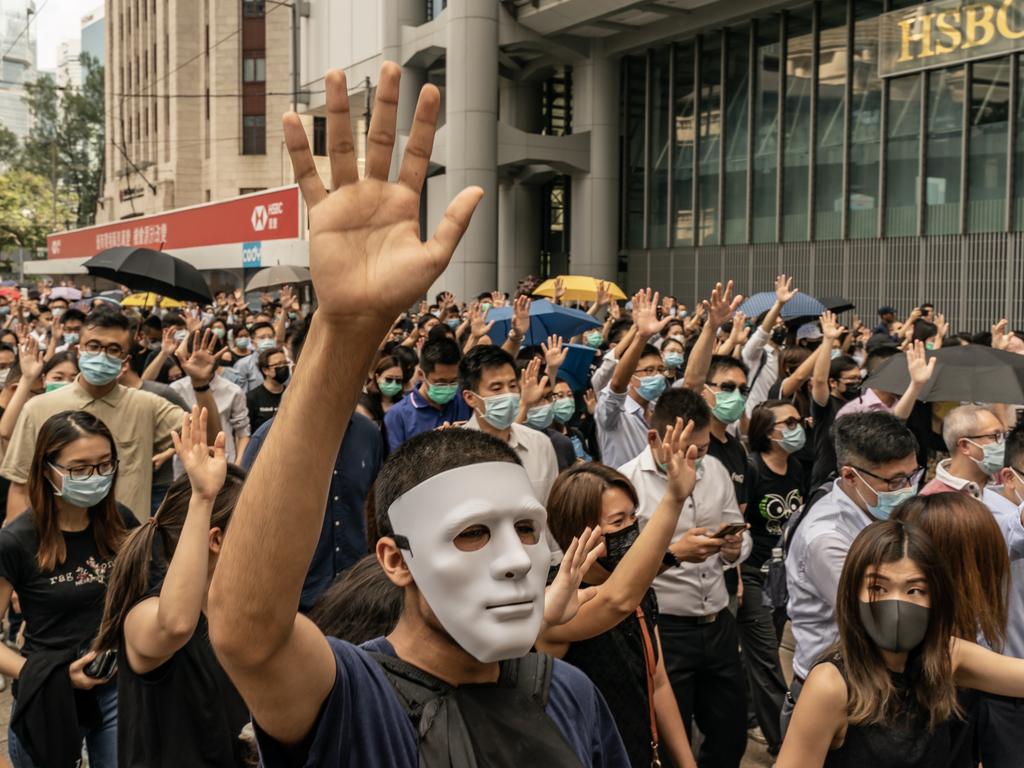Truth behind China’s forceful plan to reclaim Hong Kong
It is the sore point that represents humiliation for China going back more than 150 years. And it’s something Beijing won’t let go.
Everything Hong Kong represents is a humiliation to Beijing.
That’s why it is so determined to bring it to heel.
The British Empire occupied the island in 1841 during the First Opium War. It then set about turning the sparsely inhabited outcrop into a major naval base and trading hub. In 1997, a 50-year transition process was initiated to place the island back under Chinese control.
But Beijing has lost patience with the former British colony’s rebellious independence streak.
And that treaty appears set to be abandoned.
“China’s decision to impose a new national security law on Hong Kong lies in direct conflict with its international obligations under the principles of the legally binding, UN-registered Sino-British Joint Declaration,” a joint statement issued by Australia, the US, UK and Canada declares.
Not that Beijing cares.
RELATED: One week until controversial China law
RELATED: HK CEO warns opposition over security law
It has resolved to ram its national security laws through Hong Kong’s parliament in a move designed to suppress any form of open dissent. It will be a crime to in any way undermine the Chinese Communist Party’s authority.
“It would up-end China‘s ‘one country, two systems’ paradigm, and it would be a clear violation of China’s international obligations,” British Foreign Secretary Dominic Raab said of the move.

But Beijing insists Hong Kong’s protests are an “internal matter” and outside interference will not be tolerated.
It’s all about preserving the Communist Party’s unquestioned control over its people.
It all started with moves in 2019 to introduce an extradition bill that would allow anyone from Hong Kong to be sent to mainland China for trial. Citizens already concerned at the loss of civil liberties and the “disappearance” of vocal critics of Beijing rebelled at the notion.
Beijing has painted this as an attack on its sovereignty and has moved to arrest Hong Kong councillors and opposition leaders, protesters, journalists and students under charges of sedition.
“Hong Kong has been descending into a spiral of political conflict for a decade, with a rapid acceleration over the last few years,” Lowy Institute analyst Ben Bland writes. “Beijing has always seen the one country, two systems arrangement as a messy compromise to smooth the handover from British rule in 1997 rather than a long-term basis for political freedoms and autonomy.”

“One country, two systems” was invented to guarantee the liberties of freedom of expression, an independent judiciary and elected officials that had underpinned the island’s economic success.
It was never going to be an easy process.
And keeping the former British colony democratic no longer holds as much value for Beijing as it once did.
It has lost much of its status as a regional trading hub and international financial centre.
Hong Kong’s economy is now about 2.7 per cent of that of the mainland. That’s down from 18.4 per cent in 1997.
So erasing its inconvenient independence comes at a greatly reduced cost.




